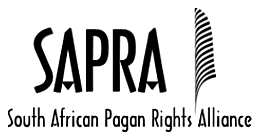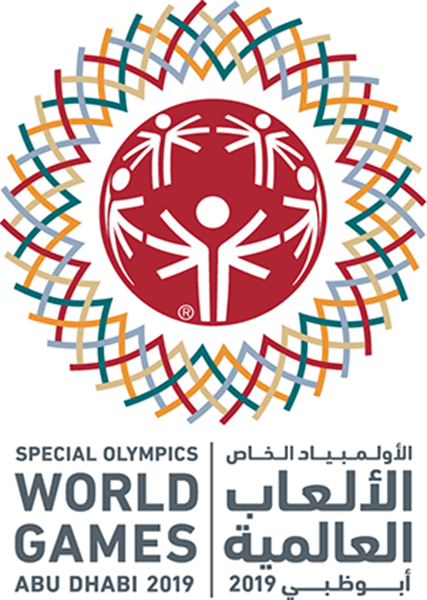Every year, the South African Pagan Rights Alliance Touchstone Advocacy runs a 30 day campaign to end “witch-hunts” and the accusations of “witchcraft” (see note below) in South Africa. This year, the campaign runs from March 29 to April 27. The importance of campaigns like this cannot be overstated. SAPRA’s leadership with this campaign powerfully responds to a critical worldwide need for greater public awareness, education, and advocacy against “witch-hunts” that changes culture and ultimately save lives.
The effects of being accused of practicing “witchcraft” can be devastating, even when it does not result in the death of the accused. Their lives are turned upside-down.
From the SAPRA Touchstone Advocacy Campaign Press Release:
South Africa, like many other African countries, faces a largely unacknowledged internal refugee crisis as victims of witchcraft accusation who survive assault are expelled from their communities by community leaders, traditional leaders or traditional healers, sometimes after being tried in traditional courts and found guilty through divination, of alleged but still unproven accusations of witchcraft activity.
In South Africa, traditional courts occasionally adjudicate on matters relating to accusations of witchcraft. Existing customary laws and beliefs concerning witchcraft remain prejudicial to citizens who may be accused of being a witch or of practicing witchcraft.
It is important to remember that accusations of witchcraft are almost never based on evidence, and invariably lead to vigilante violence, including arson, assault and murder, against the accused.
Accusations of witchcraft and resulting witch-hunts constitute a series of clearly identified crimes under both international and national law.
In almost all cases of accusation of witchcraft, the accused will:
- not be offered access to legal defense against the accusations,
- not be considered innocent until proven guilty in a court of law
- be driven from their communities
- lose their homes as a result of arson
- be forcibly separated from their families, loved ones and friends
- be placed in custody by the South African Police Services, ostensibly for their own safety, spending at least one night in a prison cell to avoid being attacked by members of their own community
- may never return to their homes and communities of birth, and
- be forced into unwilling exile in unofficial and unacknowledged refugee camps.
By being denied access to counseling and restorative justice, the living victims of accusation – refugees of incitement, hatred and violence – are currently not afforded any assistance or protection by the South African government.

Since 2008, SAPRA has continued to fight to end “witch hunts” by appealing to the South African government. In their repeated appeals they have asked for the following actions:
- A halt to the persecution of suspected or accused witches,
- Upholding and strengthening a culture of equal human rights,
- Respond appropriately and humanely to incidences of accusations of witchcraft,
- Make the eradication of violence against suspected witches an international priority,
- Training of local police to manage witchcraft accusations and violent witch-hunts in a way that affirms the dignity and humanity of those accused of practicing witchcraft,
- Creation of victim support units to facilitate reintegration and conciliation of those accused,
- Adopt comprehensive public education and awareness programs aimed at eradicating the real causes of witchcraft accusations, and
- Conclude the review of legislation that currently seeks to suppress witchcraft or criminalize accused witches. (Note: this review is currently pending finalisation with the South African Law Reform Commission. The review started in February 2007.)
SAPRA has also renewed their repeated appeals with the South African Human Rights Commission and the Commission for the Promotion and Protection of Cultural, Religious and Linguistic Communities to help pressure the South African government in acknowledging the ongoing plight of living refugees of witchcraft accusations and witch-hunts, but to also address human rights abuses in a way that is proactive, and to adopt the policy recommendations SAPRA has proposed so that victims of prejudice and violence may have some semblance of their dignity restored.
Earlier this year, TWH published a two-part interview with Damon Leff, as well as offering ongoing coverage of the reported “witch-hunts” that continue to happen all over the continent of Africa, India, and other countries in those regions. Some weeks there are so many stories of murder and attempted murder connected to “witch-hunts” that we have had to add a separate heading in Pagan Community Notes for them.
The matter of “witch hunts” is a serious enough problem that even the United Nations Human Rights Office have weighed in, noting that “witchcraft related beliefs and practices have resulted in serious violations of human rights including, beatings, banishment, cutting of body parts, and amputation of limbs, torture and murder. Women, children, the elderly, and persons with disabilities particularly persons with albinism, are particularly vulnerable. Despite the seriousness of these human rights abuses, there is often no robust state led response. Often judicial systems do not act to prevent, investigate or prosecute human rights abuses linked to beliefs in witchcraft. This institutional failure perpetuates impunity.”

Often people who have a mental or physical disability make easy targets for accusations of “witchcraft.” Continuing to bring awareness to this issue has even spurred the host country for this year’s Special Olympics World Games, the United Arab Emirates (UAE), to help sponsor disabled athletes from 14 African countries, including Ethiopia, South Sudan and Guinea-Bissau, to participate. The idea is that by educating people about disabilities, it will help to discourage the myths and beliefs that fuel the fears creating “witch-hunts.” It may be having an impact, as four more African countries have sent observers to the Games with an eye to starting programs in their nations.
The president and managing director of the Special Olympics for Africa, Charles Nyambe, noted that the objective of the games is to educate people by promoting inclusion and interaction between disabled and non-disabled people, including in schools, in addition to using sporting events. Nyambe pointed out that when children who are not disabled are able to engage in sports with disabled children, they are longer afraid of the disabled. This seems to be reflected in the reactions that some government officials have had after attending the Special Olympics.
“We have had government leaders that have come out to Special Olympics events and have shed tears,” Nyambe said.
“They have said, ‘The reason I am shedding tears is because I am ashamed of myself, because I’m the official responsible for driving human rights and we’ve been discriminating against a population’.”
This year at the Special Olympics held in Abu Dhabi, 36 African Nations participated, sending over 600 athletes to compete. Widespread acceptance of Special Olympic programs could very well help to pave the way of dispelling the superstitions and fears that fuel the culture of “witch-hunts.” Only time will tell how effective programs like this can be.
*Note: The terms “witchcraft,” “witch(es),” and “witch-hunt” are in lowercase and held within quotation marks to delineate between Witches and Witchcraft as an identity, and religion and practice. Those accused of “witchcraft” generally have no magical practice nor do they self-identify as such.
The Wild Hunt is not responsible for links to external content.
To join a conversation on this post:
Visit our The Wild Hunt subreddit! Point your favorite browser to https://www.reddit.com/r/The_Wild_Hunt_News/, then click “JOIN”. Make sure to click the bell, too, to be notified of new articles posted to our subreddit.
